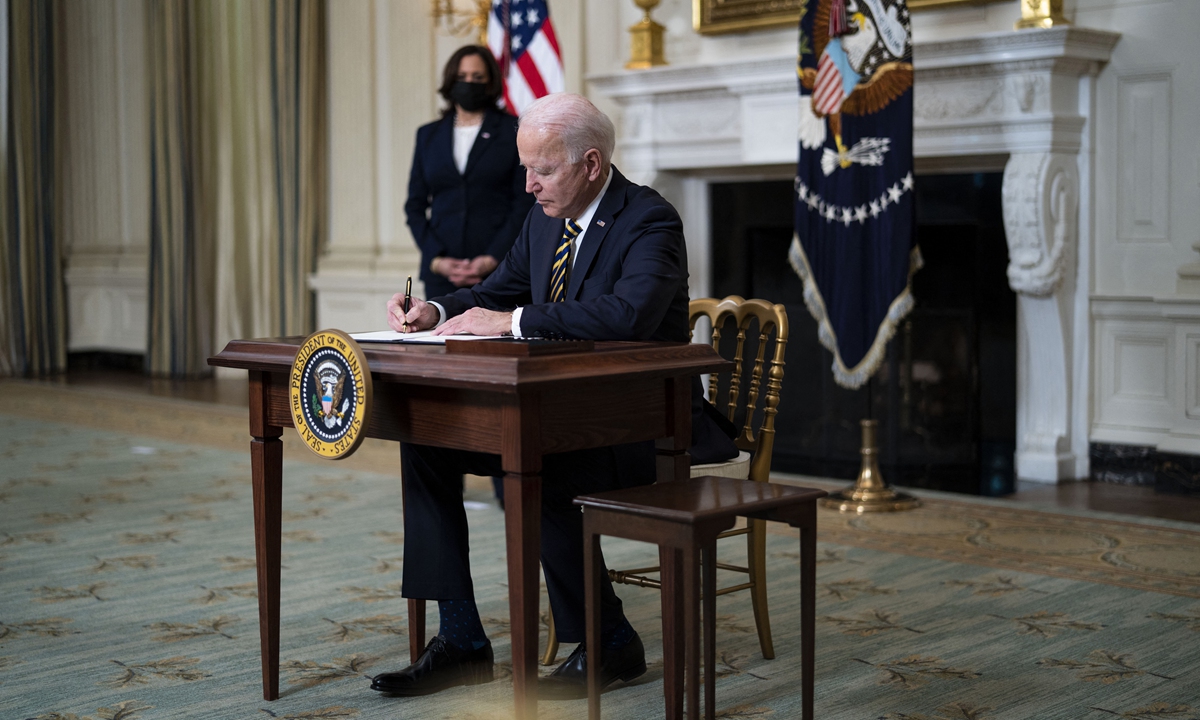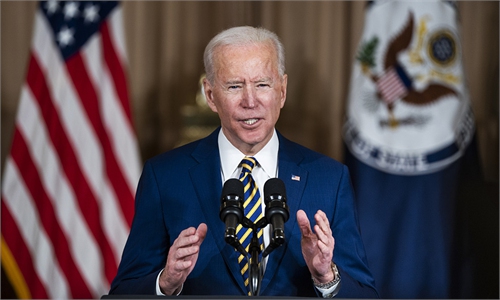
US President Joe Biden signs an Executive Order on the economy on Wednesday in the White House. Photo: AFP
US President Joe Biden said on Wednesday he would seek $37 billion in funding for legislation to supercharge chip manufacturing in the US as a shortfall of semiconductors has forced US automakers and other manufacturers to cut production.Biden also signed an executive order on Wednesday aimed at addressing the global semiconductor chip shortage that has alarmed the White House and members of Congress, administration officials said.
The scarcity, exacerbated by the pandemic, was also the subject of a discussion between Biden and a bipartisan group of US lawmakers at the White House on Wednesday.
"I'm directing senior officials in my administration to work with industrial leaders to identify solutions to the semiconductor shortfall," Biden said on Wednesday. "Congress has authorized a bill but they need ... $37 billion to make sure that we have this capacity. I'll push for that as well."
The White House said his remarks were in reference to measures aimed at boosting chip manufacturing capacity that were included in this year's National Defense Authorization Act but which require a separate appropriations process to garner funding.
The chip industry has pressed the Biden administration and Congress to take action to fund the provisions of the law. "We urge the president and Congress to invest ambitiously in domestic chip manufacturing and research," the Semiconductor Industry Association (SIA) said earlier on Wednesday.
Biden's executive order launched a 100-day review of supply chains for four critical products: semiconductor chips, large-capacity batteries for electric vehicles, rare-earth minerals and pharmaceuticals.
The order also directs six sector reviews, modeled after the process used by the Defense Department to strengthen the defense industrial base. It will be focused on the areas of defense, public health, communications technology, transportation, energy and food production.
The US has been besieged by supply shortages since the onset of the pandemic, which squeezed the availability of masks, gloves and other personal protective equipment, hurting frontline workers.
Reuters



